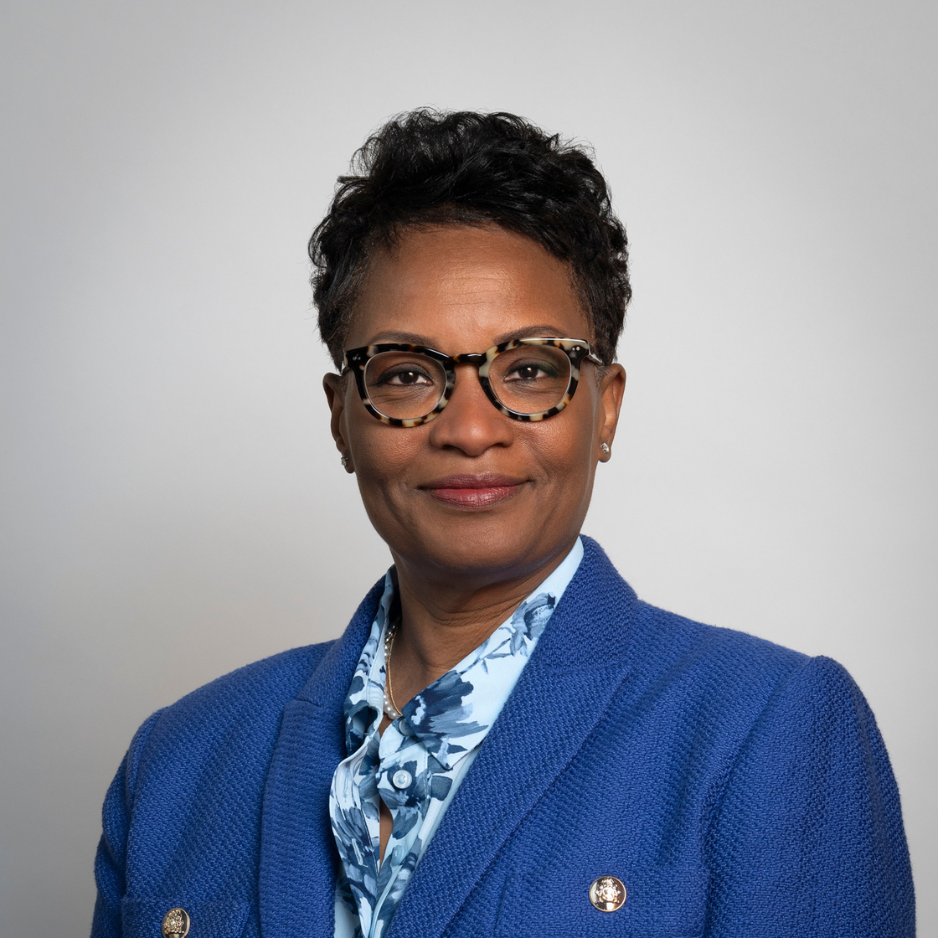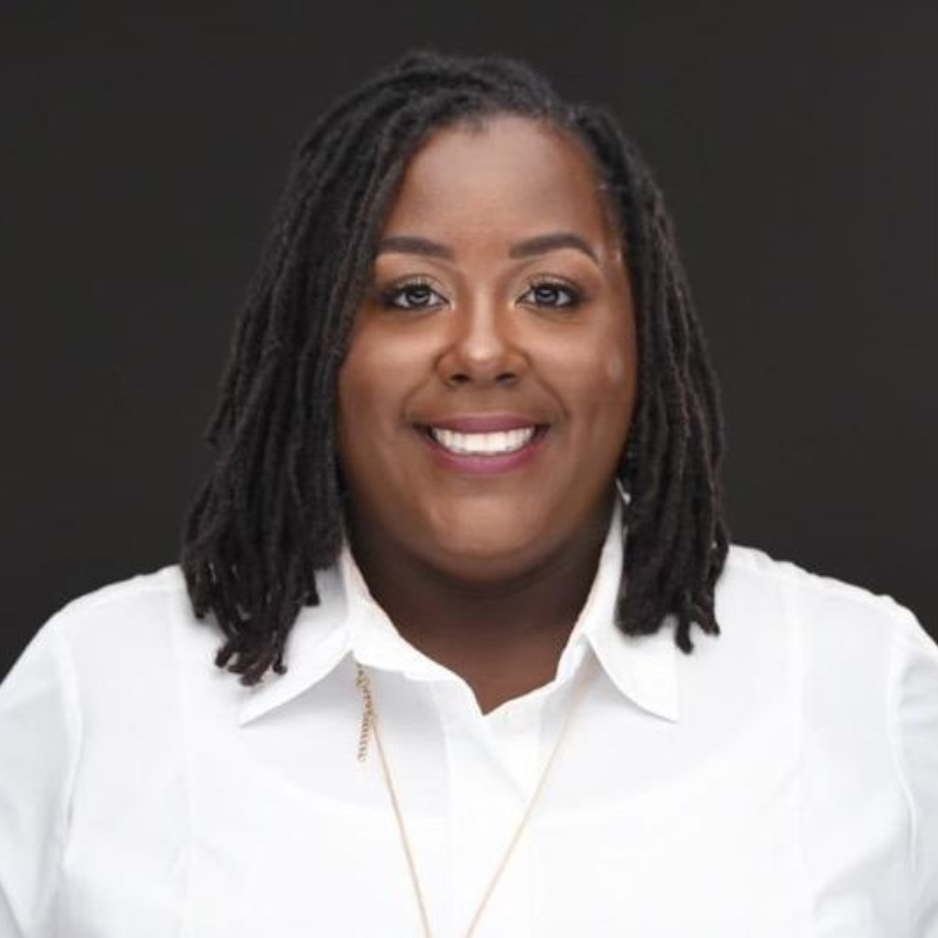In this compelling episode of At the Core of Care, we dive deep into the evolving landscape of rural healthcare with Lisa Davis, director of the Pennsylvania Office of Rural Health. From Pennsylvania’s shifting definition of “rural” to the urgent realities of hospital closures, provider shortages, and broadband gaps, Lisa sheds light on the unique challenges and promising innovations reshaping care in rural communities. Listeners will learn how community health workers, telehealth, and local investment transform access, while Medicaid policies and healthcare consolidation continue to shape the future. Lisa reminds us that rural health isn’t just a policy issue—it’s the backbone of our food, economy, and daily lives.
Lisa Davis serves as the Director of the Pennsylvania Office of Rural Health and is an Outreach Associate Professor of Health Policy and Administration at Penn State University Park. As the Director, she ensures that the state office exceeds its federal mission of being a source of networking, coordination, and technical assistance to advance rural health care delivery. On national, state, and university levels, Lisa serves on a wide range of boards of directors, advisory committees, and task forces focused on rural health policy, rural health research, economic development, outreach and education, health disparities, and vulnerable populations.
She is a recipient of state and national awards for rural service, rural health leadership, and health equity. The Pennsylvania Office of Rural Health received the Award of Merit and the Award of Excellence from the National Organization of State Offices of Rural Health.
Lisa and her husband live in Boalsburg, PA, the birthplace of Memorial Day. They have one daughter who is a junior in college majoring in restorative justice with the goal of ending human trafficking and sexual assault.
In this episode of At the Core of Care, Dr. Pheobe Askie, the new medical director at PHMC Health, shares her journey from nursing to medicine and her deep commitment to community-based primary care. With experience in both family and lifestyle medicine, Dr. Askie discusses how her nursing background continues to shape her relational approach to care. She also unpacks the evolving role of community health centers, the importance of continuity in primary care, and the potential impact of Medicaid policy changes on patient access and health outcomes.
Dr. Pheobe Askie is a family and lifestyle medicine physician and the new medical director at PHMC Health, with a background in nursing and a focus on community-based care.
In this episode of At the Core of Care, we speak with Chanel Hart, MBA, MSN, RN, Director of Nursing for PHMC Health in Philadelphia, about the evolving role of nurses in primary care. Chanel shares her unconventional path into nursing, her frontline experiences during the COVID-19 pandemic, and how nurses are leading impactful initiatives in community health.
She highlights a successful blood pressure management program supported by the American Heart Association, where nurses guide patients through self-monitoring and education. By building trust and improving engagement, these nurse-led visits have reduced no-show rates and enhanced outcomes.
The conversation also explores how nurses are essential in transitions of care after hospital discharge—managing follow-ups, preventing readmissions, and advocating for reimbursement models that fully reflect the value of nursing in ambulatory care.
Chanel Hart, Director of Nursing for PHMC Health in Philadelphia, about the evolving role of nurses in primary care. Chanel Hart, MBA, MSN, RN

AVAILABLE ON
This episode marks the second part of our two-part series on Reimaging the Nursing Workforce: Opportunities for Growth in PA. In this episode, we continue our conversation with Deborah Gardiner, diving deeper into the workings of the Nurse Residency Collaborative.
Deb, a true expert in the field, explains how these residency programs are structured to support and guide new nurses through their early career stages. As the co-chair of the Workforce Coalition's Nurse Residency Collaborative and the Nurse Residency Coordinator at Thomas Jefferson University Hospital in Philadelphia, she offers valuable insights drawn from her extensive experience.
In addition to her role with nurse residencies, Deb also serves as a Nursing Professional Development Specialist and Nurse Leader for the hospital's RISE program, which helps healthcare workers navigate the emotional toll of traumatic patient care experiences. Tune in for more on how these critical programs are shaping the future of nursing and supporting the well-being of healthcare professionals.
Deborah Gardiner MSN, RN CCCTM is the Nurse Residency Coordinator at Thomas Jefferson University Hospital Inc. in Philadelphia, Pennsylvania. She has been a nurse for 33 years specializing in surgery and trauma nursing. She served 15 years as a Clinical Nurse Specialist in that specialty supporting and mentoring bedside nurses. Deborah is the Nursing Co-Lead of the RISE program at Thomas Jefferson University hospital Inc. which is a peer support program fostering the wellness and holistic health of health care providers. She is the co-chair of the Pennsylvania Nursing Workforce Coalition (PA-NWC) Steering Committee. She transitioned to Nursing Professional Development Specialist in 2021 and assumed the role of the Nurse Residency Coordinator in 2022. Deborah Gardiner

AVAILABLE ON
We’re thrilled to announce a major milestone for our organization—our brand refresh! Formerly known as the Pennsylvania Action Coalition, we are now the Pennsylvania Nursing Workforce Coalition, a new name that reflects our mission to place Pennsylvania’s nursing workforce at the forefront of healthcare.
In this episode, we dive into our vision and strategic priorities as we embark on a five-year plan to advocate, support, and advance a nursing workforce that drives a healthier Pennsylvania. Our approach includes three core initiatives: Bolstering nursing workforce pathways, Reimagining public policy through data, and Embracing diversity with equitable solutions.
We’ll be joined by Daniel Hudson, Vice President and Associate Chief Nurse Executive for Nursing Operations and Administration at Jefferson Health in Philadelphia. Daniel is one of our newest advisory board members, and he brings invaluable expertise in nursing workforce optimization, care delivery, and staff engagement. We’ll be discussing the future of nursing, healthcare trends, and how Daniel’s extensive experience can help us move closer to our goals.
Daniel serves as the VP/ACNE of Nursing Operations at Jefferson Health in Philadelphia, PA. In this role, he provides strategic and operational leadership for nursing workforce optimization focused on building robust talent streams, optimizing care delivery & resources, and investing to engage staff. While his work expands the care continuum and he is an expert in nursing workforce strategy, he holds a deep conviction to improve nurse and leader wellbeing. Prior work includes operational roles at University of Vermont Medical Center and Keck Medicine of USC. Daniel Hudson

AVAILABLE ON
In this episode, Donna Bailey, CEO, guides us through the pivotal role of Community Behavioral Health (CBH). CBH funds crucial mental health treatment for Medicaid recipients in Philadelphia, ensuring accessibility and support. We focus on CBH's efforts in supporting pregnant or parenting individuals, including collaborations with the Joseph J Peters Institute (JJPI). We explore NNCC's successful collaboration with JJPI, connecting over 200 clients to essential therapy services. This highlights CBH's extensive provider network and its impact on mental health outcomes. The conversation emphasizes preemptive engagement in mental health services and overcoming systemic barriers, addressing social determinants of health crucial to tackling mental health challenges. As we observe Black Maternal Mental Health Week 2024 (July 19-26), this episode underscores the need for equitable mental health care access. Join us as we discuss fostering comprehensive care for all Philadelphians.
Donna E.M. Bailey is a distinguished healthcare professional committed to making a difference in the lives of Philadelphians. As CEO of Community Behavioral Health (CBH), a 501(c)3 behavioral health managed care plan serving over 750,000 Medicaid members in Philadelphia, Donna combines her deep dedication to service with a unique blend of expertise and empathy. Donna's leadership approach is rooted in her core belief that everyone deserves an opportunity to thrive. Her extensive professional, volunteer and philanthropic work exemplifies her steadfast commitment to supporting marginalized communities.Donna E.M. Bailey

Content Disclaimer: This episode contains discussions about intimate partner violence that some listeners may find disturbing or difficult to hear.
This episode marks the second part of our two-part series on intimate partner violence (IPV). In our previous episode, we heard from Kalena Brown, an IPV survivor who shared her journey of overcoming immense challenges and using her voice to educate and support others.
In this episode, we dive deeper into the topic with Lizz Tooher, RN, MPH and Mac Taylor, who reference Kalena's story as they discuss IPV in Philadelphia and beyond.
Lizz Tooher is a public health nurse and the Senior Director of Child Health and Education at the National Nurse-Led Care Consortium (NNCC), working closely with families raising children under five years old. Mac Taylor is a Paralegal with the Health Education and Legal Assistance Project (HELP MLP) at Widener University, collaborating with NNCC to support families enrolled in home visiting programs across Philadelphia.
Home visitors, like those in the Mabel Morris Family Home Visit program, play a crucial role in screening for IPV and providing support to survivors. It's essential to recognize that IPV extends beyond physical violence, impacting survivors psychologically, emotionally, and financially. Lizz and Mac share their insights into the challenges faced by survivors, the importance of building trust and community connections, and the systemic barriers to accessing resources. Through their discussion, they shed light on the complexities of IPV and advocate for improved support systems.
Join us as we explore the multifaceted nature of intimate partner violence and the role of healthcare providers and communities in addressing this critical issue.
Lizz Tooher, MPH, RN is Senior Director of Child and Health Services for the Mabel Morris Family Home Visit Program. In her role, Lizz leads a team of registered nurses to bring evidence-based home visiting services to families throughout Philadelphia. Holistic, strengths-based family support is provided to build healthier children, more resilient families. In turn, children develop more optimally and enter kindergarten ready for greater success in the classroom. Lizz has worked in the field of Community Health since completing nursing school at the Community College of Philadelphia in 2012. Her commitment to the field has led her to pursue her Masters in Public Health through the School of Public Health at Drexel University, graduating in 2017. She looks forward to growing personally and professionally while working amongst the diverse communities in the great city of Philadelphia. Mac Donald P. Taylor Jr. (Mac), is a graduate of Delaware County Community College, receiving his Associate of Applied Science degree in Paralegal Studies where he was selected as one of six students internationally as an Achieving the Dream Scholars and is an honorary member of PHI THETA KAPPA. He interned with SeniorLAW Center and was a victim advocate assisting senior citizens who have been a victim of a crime. Most recently Mac was advocating for returning citizens with pardon and expungement work with Philadelphia Lawyers for Social Equity. Mac has a passion to be a voice and to use his personal journey to be a mentor and advocate for the underserved and disenfranchised and now serves as Paralegal with NNCC's partner HELP:MLP a medical legal partnership with Widener Delaware School of Law. Mac is also one of two IPV/DV Champions that provide internal support for our home visiting staff as they assist their clients.Lizz Tooher, RN, MPH

Mac Taylor

Content Disclaimer: This episode contains discussions about intimate partner violence that some listeners may find disturbing or difficult to hear.
In this episode, we begin a powerful two-part series on intimate partner violence (IPV). In Part 1, Kalena Brown, an IPV survivor shares her story of overcoming immense challenges including physical and psychological trauma, systemic failures, and societal stigma.
Kalena recounts her harrowing journey through custody battles, abuse, and the emotional aftermath of IPV. She reveals the persistent institutional problems survivors face and her efforts to advocate for change within the healthcare and judicial systems. Her story is a testament to resilience and the importance of reclaiming one's voice.
Join us as we delve into Kalena's story, shedding light on the often-hidden aspects of IPV and exploring how healthcare providers and society can better support survivors.
As we bring you this episode in May, which is Mental Health Awareness Month, it's crucial to recognize that IPV manifests in various forms beyond physical violence, including psychological, emotional, and financial abuse.
If there is one word to describe Kalena Brown, it is resilient. Despite facing numerous obstacles, including physical and sexual abuse, homelessness, and postpartum depression, she has persevered. Transforming the darkest moments of her life into a powerful advocacy platform, Kalena now stands as a beacon for justice, challenging both the healthcare and judicial systems. She leverages her personal story to raise awareness about intimate partner violence, influencing hospitals in Philadelphia, churches, and various organizations. Kalena is dedicated to sharing her experiences and bringing awareness to issues often overlooked by society.Kalena Brown

In this compelling podcast episode, we are joined by guest Shukriyyah Mitchell Hinton, BSN, RN, the Senior Director of Outreach and Advocacy from the National Nurse-Led Care Consortium (NNCC) who leads a poignant conversation with Saleemah McNeil, CLC, MS, MFT, and Imani Davis. Together, they delve into the systemic challenges facing Black maternal health in Philadelphia and beyond. From personal experiences to community initiatives, they explore the multifaceted efforts to address disparities through advocacy, education, and support. As they navigate through discussions on mental health, home visiting programs, and legislative advocacy, they bring light to the ongoing struggles for maternal health equity.
This episode coincides with Black Maternal Health Week. To learn more about virtual and in-person events scheduled in Philadelphia, please visit bmhwphilly.org for more information.
Shukriyyah Mitchell-Hinton is the Senior Director of Outreach and Advocacy at the National Nurse-Led Care Consortium.Shukriyyah Mitchell-Hinton, BSN, RN

Saleemah McNeil is a reproductive psychotherapist and founder of the Oshun Family Center in Jenkintown, Pennsylvania. Imani Davis is a lived experience expert and community specialist for organizations including Strategy Arts and the Community Action Network (CAN). Saleemah McNeil, CLC, MS, MFT

Imani Davis

In a special collaboration, the Pennsylvania Action Coalition joined forces with Kouvenda Media’s Obscured Journalism Initiative last year to host a thought-provoking panel discussion on law enforcement interactions within the community and the implementation of a harm reduction care model.
Our partners at Obscured captured the insights of our distinguished panelists in two parts, each shedding light on the diverse facets of harm reduction and effective strategies for addressing trauma resulting from interactions with law enforcement. If you have not listened to Part 1, we recommend starting with that episode. Listen here!
Continuing the dialogue in the second part of the panel discussion are moderators Stephanie Marudas from Kouvenda Media and Namaijah Faison, MPH from the Pennsylvania Action Coalition. Joining them is Talitha Smith, BSN, RN, a nurse navigator with the Allegheny Health Network’s Center for Inclusion Health Clinic, RIvER (Rethinking Incarceration and Empowering Recovery). Following Talitha, we delve into the experiences of Chad Bruckner, a retired police detective who now owns and oversees a private investigator firm, Intercounty Investigations & Solutions, Inc. and is a coach and recovery specialist. Wrapping up the discussion is Laurie A. Corbin, MSS, MLSP, who is the Managing Director for Community Engagement at Public Health Management Corporation (PHMC). She oversees a range of programs that provide social services, prevention, intervention, treatment, and education to at-risk individuals and their families.
Laurie Corbin is Managing Director for Community Engagement at Public Health Management Corporation and has worked for PHMC for 13 years. In this position, Ms. Corbin is responsible for a continuum of programs that provide social services prevention, intervention, treatment, and education to at risk individuals and their families. This includes responsibility for Forensic Services aka Forensic Intensive Recovery (FIR) Programs, which represents a continuum of programs or services that focus on the diversion and advance release from incarceration for justice- involved individuals. The Community-Based Outreach Programs (CBOP) include a treatment readiness/recovery support program, New Pathways Project and Philadelphia Hepatitis Outreach Project, a prevention education initiative for high-risk individuals. The Homeless and Social Service program area within the division includes a range of services which seek to provide comprehensive, integrated services to the most vulnerable populations. This includes services for chronically homeless adults, youth, and families on the street, and in emergency, transitional, and permanent supported housing. She also oversees PHMC’s Ryan White intermediary services programs, which provide individuals with HIV/AIDS with financial support including transportation, food voucher and utility assistance. Laurie A. Corbin, MSS, MLSP

Talitha Smith is a nurse navigator with the Allegheny Health Network’s Center for Inclusion Health clinic: Rethinking Incarceration and Empowering Recovery or RIvER. Ms. Smith has 25 years of experience working with marginalized populations and found her passion in community health after becoming a nurse as a second career. She actively promotes harm reduction and conducts related education, and advocates for access to comprehensive, quality health care for all. In 2008, Detective Bruckner joined the Lansdale Police Department in Montgomery County, Pennsylvania and in 2012 he was promoted to the rank. of detective. He served as a senior field training officer, a squad leader, an undercover officer, and a coordinator for the Montgomery County Drug Task Force. After 13 years in law enforcement, Detective Bruckner retired in 2021. Since his certification in 2018, Detective Bruckner instructs cadets on various topics at Montgomery County Municipal Police Academy in Pennsylvania. He owns and oversees a private investigation firm, Intercounty Investigations & Solutions, Inc. He continues to serve his community as a part of the Montgomery County Crisis Intervention Stress Management team, and is a certified Mental Health Peer Advocate. Chad reflects on his policing experience in his first book that came out recently, called, The Holy Trinity of Successful and Healthy Police Organizations: Improving Leadership, Culture and Wellness.Talitha Smith, MA, BSN, RN

Detective Chad Bruckner (Ret.)
